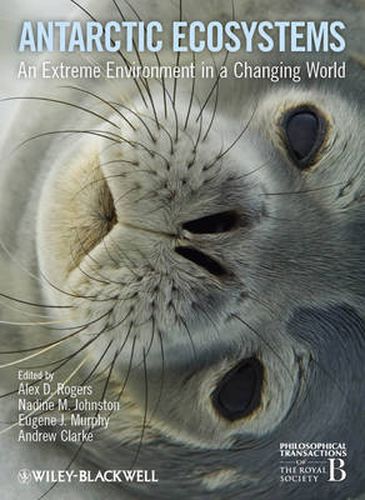Readings Newsletter
Become a Readings Member to make your shopping experience even easier.
Sign in or sign up for free!
You’re not far away from qualifying for FREE standard shipping within Australia
You’ve qualified for FREE standard shipping within Australia
The cart is loading…






Since its discovery Antarctica has held a deep fascination for biologists. Extreme environmental conditions, seasonality and isolation have lead to some of the most striking examples of natural selection and adaptation on Earth. Paradoxically, some of these adaptations may pose constraints on the ability of the Antarctic biota to respond to climate change. Parts of Antarctica are showing some of the largest changes in temperature and other environmental conditions in the world. In this volume, published in association with the Royal Society, leading polar scientists present a synthesis of the latest research on the biological systems in Antarctica, covering organisms from microbes to vertebrate higher predators. This book comes at a time when new technologies and approaches allow the implications of climate change and other direct human impacts on Antarctica to be viewed at a range of scales; across entire regions, whole ecosystems and down to the level of species and variation within their genomes. Chapters address both Antarctic terrestrial and marine ecosystems, and the scientific and management challenges of the future are explored.
$9.00 standard shipping within Australia
FREE standard shipping within Australia for orders over $100.00
Express & International shipping calculated at checkout
Since its discovery Antarctica has held a deep fascination for biologists. Extreme environmental conditions, seasonality and isolation have lead to some of the most striking examples of natural selection and adaptation on Earth. Paradoxically, some of these adaptations may pose constraints on the ability of the Antarctic biota to respond to climate change. Parts of Antarctica are showing some of the largest changes in temperature and other environmental conditions in the world. In this volume, published in association with the Royal Society, leading polar scientists present a synthesis of the latest research on the biological systems in Antarctica, covering organisms from microbes to vertebrate higher predators. This book comes at a time when new technologies and approaches allow the implications of climate change and other direct human impacts on Antarctica to be viewed at a range of scales; across entire regions, whole ecosystems and down to the level of species and variation within their genomes. Chapters address both Antarctic terrestrial and marine ecosystems, and the scientific and management challenges of the future are explored.